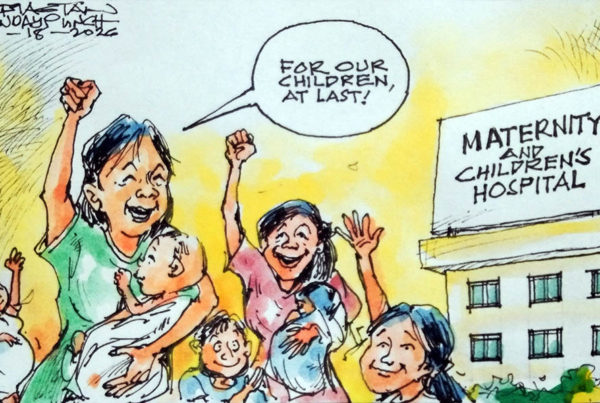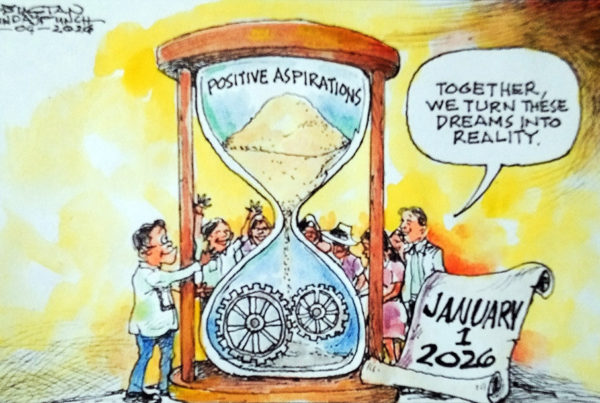Editorial
Virus alert
HEALTH officials at the national and local levels have had their hands full over the last couple of weeks with the rash of illnesses affecting whole barangays in different parts of the country. The most prominent has been diarrhea – worsening even to dysentery level – in Bohol and Quezon. There were also reports of dengue virus incidents in several other provinces.
The most disturbing of these is the case of Loon, Bohol not only because of the number of people – both adults and children, but mostly children – affected but due to the fact that this barangay was awarded a Gantimpalang Paglilingkod Pook (Gawad Galing Pook) recognition in 1997 for its Waterworks System Development and Expansion. How ironic that ten years later, a water-borne disease would down people and claim lives in the community. Among other things, this teaches us that we cannot just relax and rest on our laurels, especially when it concerns health issues.
While these recent outbreaks are nowhere close to our home province, it still summons up memories of our own dengue crisis late last year wherein close to a thousand people were affected. The previous year, the number even went beyond the thousand marks. And going back a year further, remember the acute gastro enteritis and cholera epidemic in 2004 which hit Malasiqui and San Carlos?
History, both our own and those of others, imparts lessons that should keep us vigilant about the protection of one of our most important resources. Health is wealth. It’s an age-old adage alright, but its meaning and value is as true as ever.
And so we welcome with a round of applause the news that the local government of Mapandan is undertaking a potable water system project for the town. This is the direction that majority of the other towns in Pangasinan will eventually have to head for because population is growing and water resources, though seemingly free-flowing and infinite, will have to be managed as part of a bigger scheme to protect both our people’s health and the environment.
It will cost money, of course. The government, and perhaps with help from the private sector, will have to spend for the development of a water utility system. And the people should also understand that they will have to pay for the supply and service.
The economics of it all can be equitable – project costs do not have to be outrageously high and the people need not pay ridiculous rates. And that is only possible if the powers that be do not allow themselves to be infected by that virus called greed. Public service projects should always be designed for the benefit of the people, not for the personal gain of those in authority. A public water utility should be sustainable but not necessarily a money-making venture.
Spending for personal and communal well-being should not be looked at as a sacrifice. It should be treated as an indispensable investment. If we do not take proactive steps in maintaining personal hygiene, keeping our environment clean, and managing our natural resources, the viruses, sooner or later, will catch us unaware.










